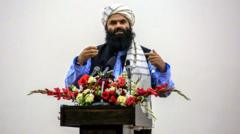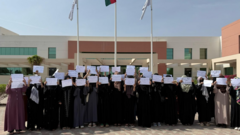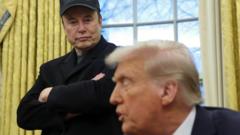US lifts multimillion-dollar bounties on senior Taliban members, signaling new diplomatic direction
U.S. Removes Bounties on Notorious Taliban Leaders

U.S. Removes Bounties on Notorious Taliban Leaders
Significant Policy Shift as US Engages with Taliban Officials Amid Hostage Negotiations
The United States has made a surprising change in its approach towards the Taliban by lifting bounties on three senior officials associated with the notorious Haqqani network, renowned for its role in numerous deadly attacks during the Afghanistan conflict. This development comes closely on the heels of a rare diplomatic mission by U.S. hostage envoy Adam Boehler to Kabul, marking the highest-level visit by an American and opening discussions that ultimately led to the release of an American hostage imprisoned in Afghanistan for over two years.
This shift suggests a new strategy under the Trump administration, contrasting sharply with the Biden administration's previous policy, which largely sidelined Taliban engagements. The lifting of the bounties, which previously totaled $20 million for information leading to the capture of these leaders, is seen as a significant victory for the Taliban government, particularly among its more moderate factions that have been advocating for policy changes to gain international legitimacy.
Among the Taliban officials who had bounties removed is Sirajuddin Haqqani, the head of the Haqqani network and the acting Taliban interior minister, alongside his brother Abdul Azizi Haqqani and cousin Yahya Haqqani. The decision marks a stark departure from the U.S. stance that categorized the Haqqani network as a foreign terrorist organization and had fueled the ongoing internal power struggle within the Taliban between hardliners and those seeking moderation. The removal of these individuals from the State Department’s Rewards for Justice program, as well as from the FBI’s wanted poster for Sirajuddin Haqqani, symbolizes a pivotal moment in U.S.-Taliban relations, as both sides navigate the complexities of their interactions in a shifting geopolitical landscape.
This shift suggests a new strategy under the Trump administration, contrasting sharply with the Biden administration's previous policy, which largely sidelined Taliban engagements. The lifting of the bounties, which previously totaled $20 million for information leading to the capture of these leaders, is seen as a significant victory for the Taliban government, particularly among its more moderate factions that have been advocating for policy changes to gain international legitimacy.
Among the Taliban officials who had bounties removed is Sirajuddin Haqqani, the head of the Haqqani network and the acting Taliban interior minister, alongside his brother Abdul Azizi Haqqani and cousin Yahya Haqqani. The decision marks a stark departure from the U.S. stance that categorized the Haqqani network as a foreign terrorist organization and had fueled the ongoing internal power struggle within the Taliban between hardliners and those seeking moderation. The removal of these individuals from the State Department’s Rewards for Justice program, as well as from the FBI’s wanted poster for Sirajuddin Haqqani, symbolizes a pivotal moment in U.S.-Taliban relations, as both sides navigate the complexities of their interactions in a shifting geopolitical landscape.






















